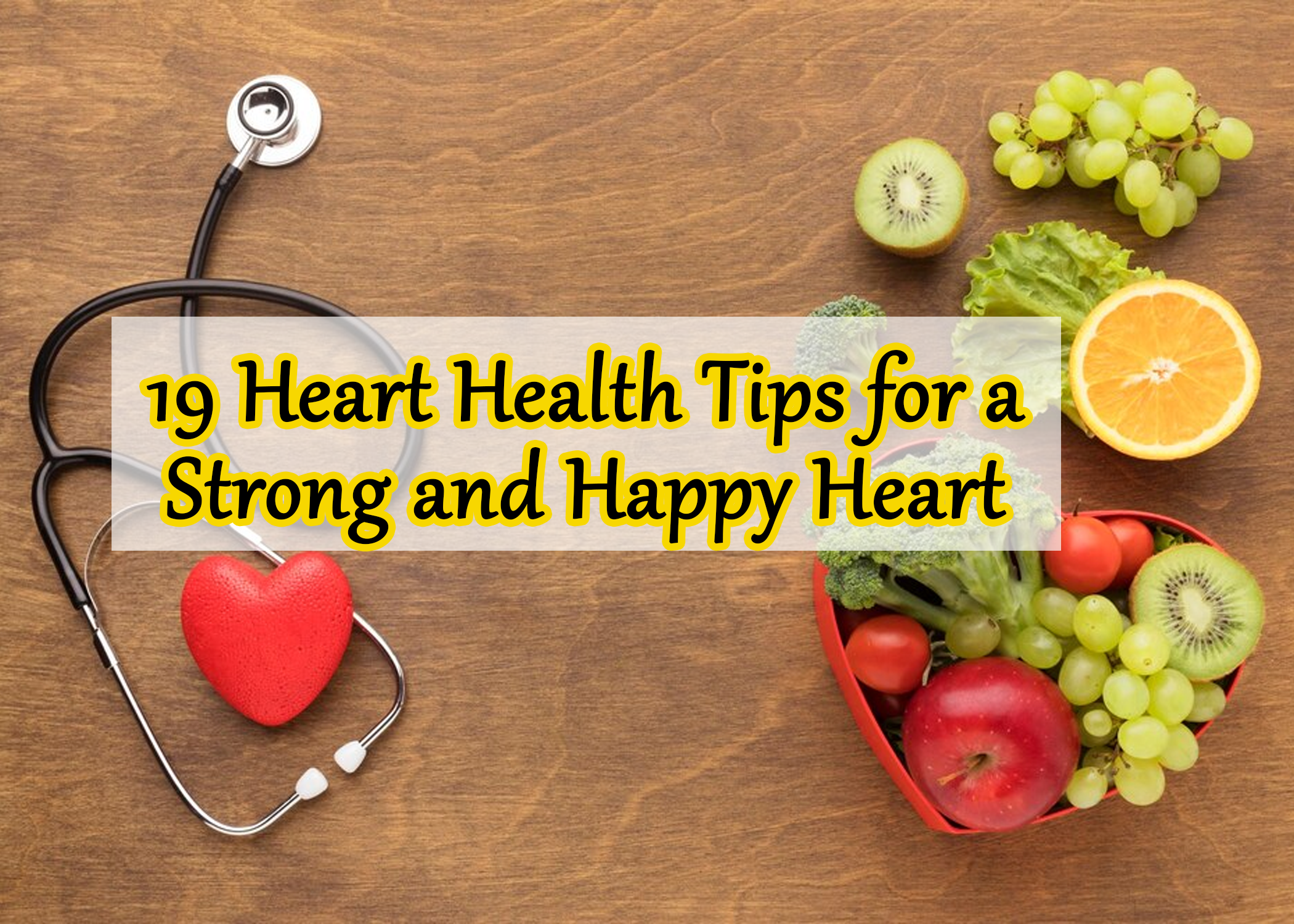Keeping your heart healthy isn’t just about avoiding problems—it’s about living a full, energetic life. Your heart is the powerhouse of your body, pumping oxygen and nutrients to every cell. But with busy schedules, unhealthy habits, and daily stress, it’s easy to overlook the small things that make a big difference.
So, how do you keep your heart in top shape? It’s not about making drastic changes overnight. Instead, it’s about adopting simple yet powerful habits that protect your heart every day. From smart eating choices to better stress management, let’s dive into 19 heart health tips that will keep your heart strong and happy!
1. Eat More Heart-Healthy Foods
What you put on your plate directly affects your heart. Choosing whole, unprocessed foods like fruits, vegetables, and lean proteins provides essential nutrients. These foods are packed with fiber, vitamins, and antioxidants that support heart function and improve circulation.
Healthy fats like olive oil, avocados, and nuts help lower bad cholesterol levels. Swapping saturated and trans fats for these better options reduces the risk of heart disease. Small changes, such as switching white bread for whole grain or adding an extra serving of vegetables, can significantly improve heart health.

2. Cut Down on Added Sugar and Processed Foods
Excess sugar and processed foods contribute to weight gain, high blood pressure, and diabetes, all of which strain your heart. Packaged snacks, sodas, and fast food are loaded with hidden sugars and unhealthy fats that put your cardiovascular system at risk.
Choosing natural sweeteners like honey or fruits instead of refined sugar can make a big difference. Reading food labels helps you avoid sneaky sugars, which often hide in seemingly healthy products like granola bars and yogurt. The less processed your food, the healthier your heart will be.
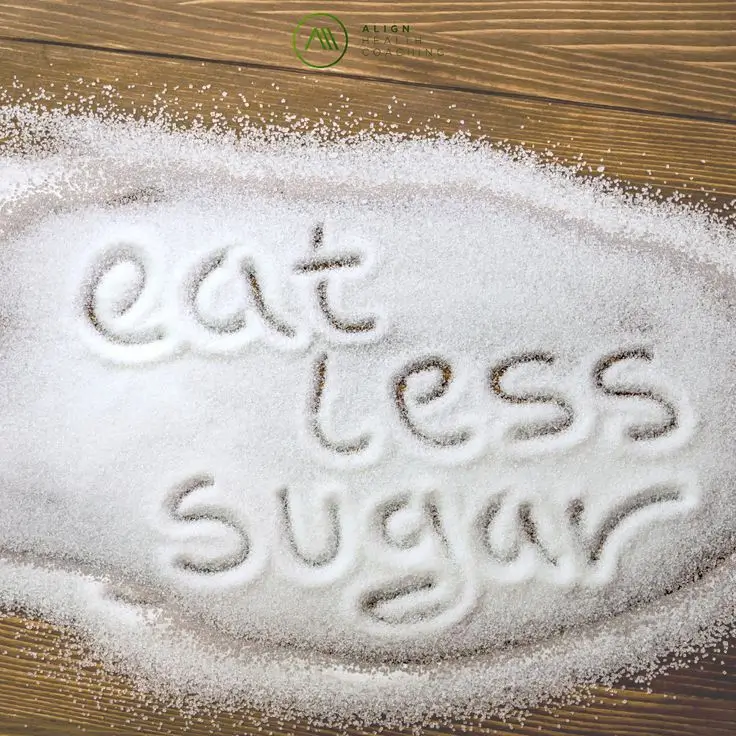
3. Stay Active Every Day
Exercise isn’t just about looking good—it’s about keeping your heart strong and efficient. Regular physical activity helps improve blood circulation, lower cholesterol levels, and regulate blood pressure. Even a brisk 30-minute walk can have lasting benefits for your heart.
You don’t need a gym membership to stay active. Simple habits like taking the stairs, walking after meals, or stretching throughout the day can keep your heart pumping. Strength training a couple of times a week also helps burn fat and build muscle, reducing strain on the heart.

4. Manage Stress Before It Manages You
Stress is a silent killer that can negatively impact heart health. It raises blood pressure, triggers inflammation, and can lead to unhealthy habits like overeating or smoking. Managing stress before it takes over is essential for long-term wellness.
Taking deep breaths, practicing meditation, or engaging in yoga can help calm your nervous system. Making time for relaxation and prioritizing sleep also lowers stress levels. Even something as simple as taking a short walk or enjoying a good laugh can reset your mood and protect your heart.

5. Get Enough Quality Sleep
Lack of sleep can increase the risk of heart disease by affecting blood pressure, stress hormones, and inflammation. When your body doesn’t get enough rest, it struggles to maintain a healthy cardiovascular system.
Creating a consistent sleep schedule and avoiding screens before bedtime can improve sleep quality. Aiming for 7-9 hours of uninterrupted sleep each night gives your heart the recovery time it needs. A well-rested heart is a happy and healthy heart.

6. Drink More Water
Staying hydrated is crucial for heart health, as water helps with blood circulation and prevents clotting. Dehydration can lead to higher blood pressure and increased strain on the heart, making it essential to drink enough water daily.
8 glass water per day helps maintain a healthy cardiovascular system.

7. Spend More Time in Nature
Spending time outdoors is more than just refreshing—it’s incredibly beneficial for your heart. Fresh air, natural surroundings, and exposure to sunlight help reduce stress, lower blood pressure, and improve overall heart function.
Taking a walk in the park, hiking in the mountains, or simply sitting outside in the sunlight can have a calming effect on your nervous system. Being in nature encourages physical movement, which improves circulation and cardiovascular health. Even just 20 minutes a day in a green space can help your heart stay strong and healthy.

8. Maintain a Healthy Weight
Excess weight puts unnecessary strain on the heart, increasing the risk of high blood pressure, cholesterol imbalances, and diabetes. Maintaining a healthy weight helps your heart function efficiently and reduces overall stress on your cardiovascular system.
Focusing on portion control and nutrient-dense foods makes weight management easier. Moving more throughout the day, whether by walking, stretching, or engaging in physical activities, can help keep your heart strong and healthy.
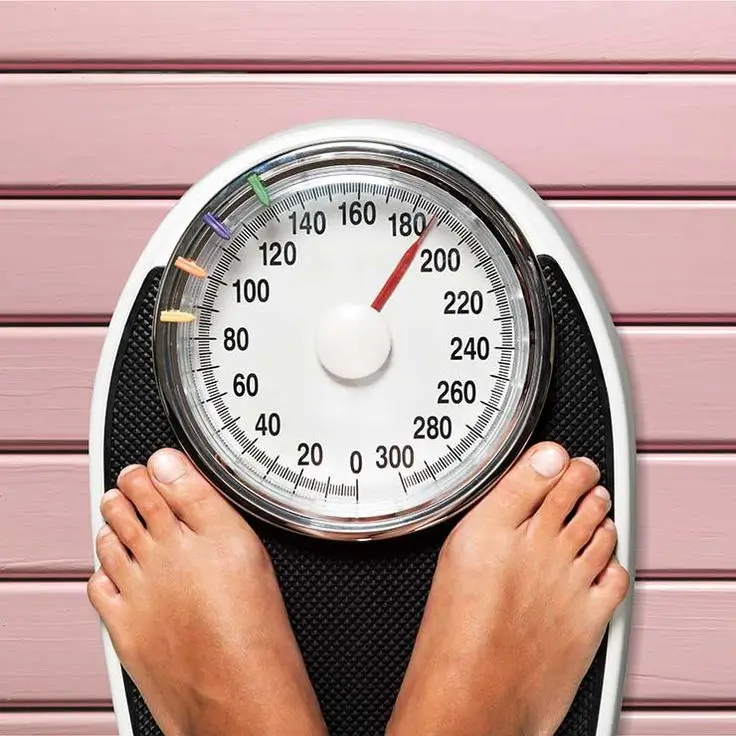
9. Monitor Your Blood Pressure
High blood pressure is a silent killer that often has no symptoms but can cause serious heart complications. Regularly checking your blood pressure levels helps catch problems early and keeps your heart functioning properly.
Reducing salt intake, managing stress, and staying active can help control blood pressure naturally. Small lifestyle changes, like choosing fresh over processed foods, can significantly impact your overall heart health.

10. Keep Cholesterol in Check
Balanced cholesterol levels are essential for a healthy heart. High levels of bad cholesterol (LDL) can clog arteries, increasing the risk of heart attacks. Boosting good cholesterol (HDL) helps keep the heart’s arteries clear.
Eating fiber-rich foods like oats, beans, and nuts can lower LDL levels naturally. Regular exercise also helps raise HDL, improving overall cardiovascular function.
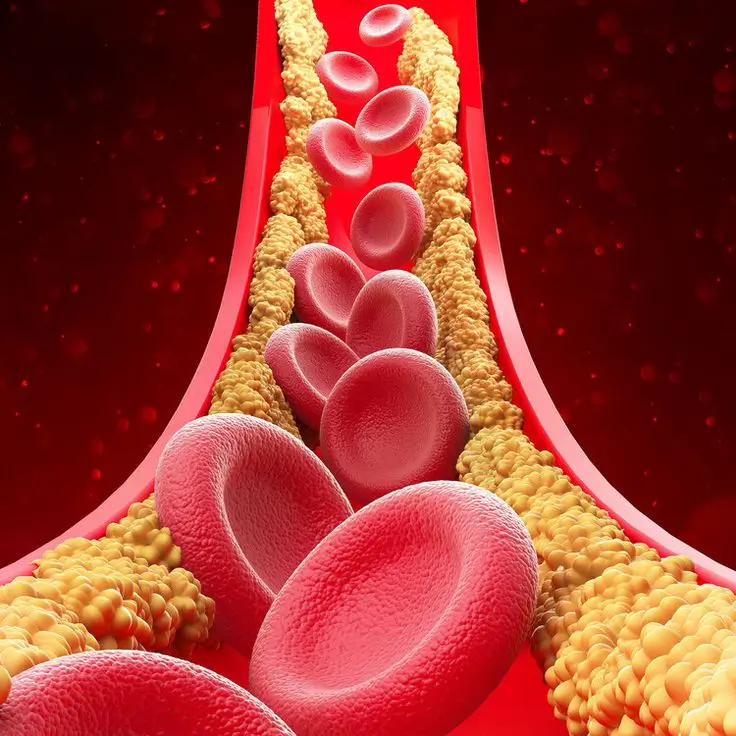
11. Control Blood Sugar Levels
Excess sugar in the bloodstream can damage blood vessels and increase the risk of heart disease. Keeping blood sugar levels in check is essential for maintaining a healthy cardiovascular system.
Choosing whole, unprocessed foods and complex carbohydrates helps prevent sugar spikes. Regular exercise and proper hydration also regulate blood sugar naturally.
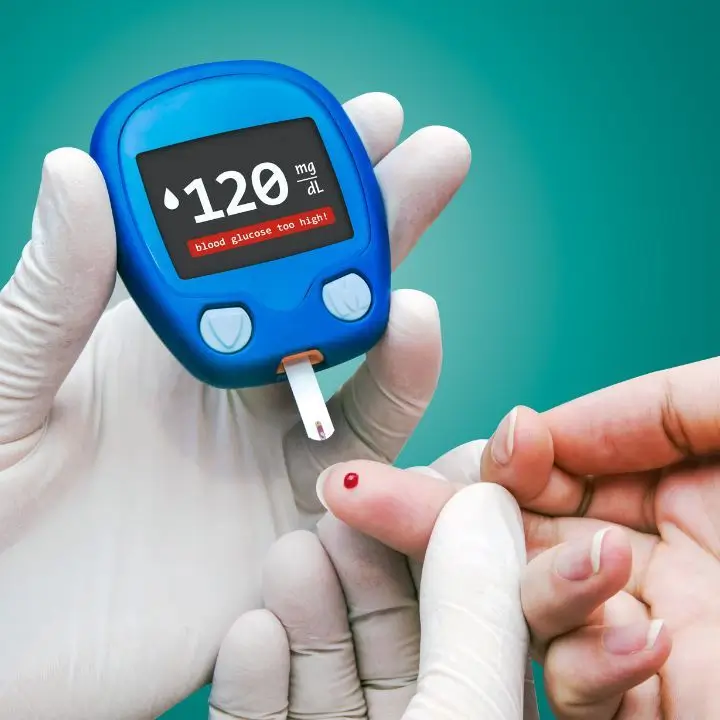
12. Add More Potassium to Your Diet
Potassium helps balance sodium levels and lower blood pressure, protecting the heart. Most people don’t get enough of this vital mineral, making it important to include potassium-rich foods.
Eating more bananas, spinach, potatoes, and oranges can provide natural potassium. Staying hydrated and reducing processed foods also helps maintain proper potassium levels.
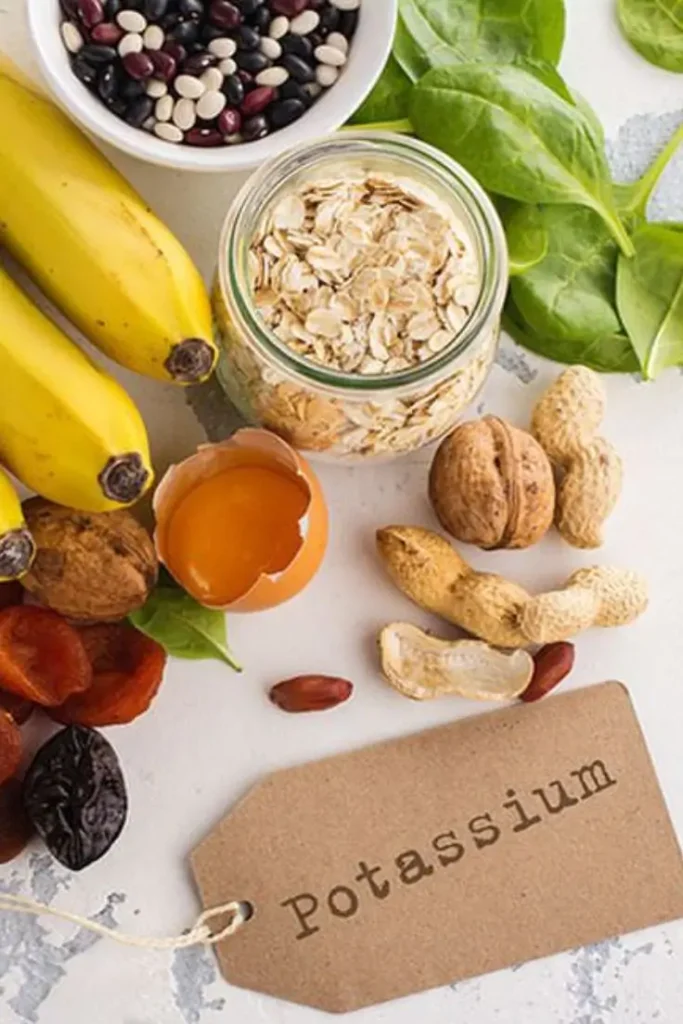
13. Limit Your Caffeine Intake
Too much caffeine can raise blood pressure and cause irregular heartbeats, affecting overall heart health. While coffee is fine in moderation, excessive intake can lead to unwanted heart complications.
Sticking to moderate amounts of caffeine, about 400 mg per day, helps keep your heart stable. Opting for herbal teas or decaf options can be a heart-friendly alternative.

14. Strengthen Social Connections
Social isolation and loneliness can increase stress and raise the risk of heart disease. Building strong relationships promotes emotional well-being and heart health.
Spending time with loved ones or joining social groups helps create a sense of connection. Even interacting with pets can provide emotional support and lower blood pressure.

15. Laugh More, Worry Less
Laughter isn’t just good for the mind—it’s great for the heart. It helps lower stress hormones, improve circulation, and release feel-good chemicals that promote heart health.
Watching a funny movie, spending time with humorous friends, or finding joy in small moments can help keep your heart healthy. A happy heart is a strong heart.

16. Cook at Home More Often
Restaurant meals are often high in salt, unhealthy fats, and sugar, increasing the risk of heart disease. Cooking at home gives you control over ingredients, making meals healthier.
Using fresh ingredients and natural herbs enhances flavor without extra salt. Grilling, steaming, or baking foods instead of frying helps keep your heart in great shape.

17. Schedule Regular Health Checkups
Even if you feel fine, regular health checkups help catch heart problems early. Monitoring blood pressure, cholesterol, and blood sugar levels ensures heart health.
Keeping up with doctor visits and preventative screenings can save lives. Taking proactive steps today helps keep your heart healthy for years to come.

18. Practice Deep Breathing Daily
Deep breathing is a simple yet powerful way to improve heart health. It helps lower blood pressure, reduce stress, and increase oxygen flow throughout the body. Taking a few moments each day to focus on your breath can have long-term benefits for your heart.
Practicing slow, deep breaths for a few minutes can help calm your nervous system and lower heart rate. Inhaling deeply through your nose, holding for a few seconds, and exhaling slowly can instantly relax your body. Making this a daily habit before bed or during stressful situations can improve overall heart function.

19. Keep a Positive Mindset
Your mental health and heart health are deeply connected. Constant stress, anxiety, and negative emotions can increase inflammation, raise blood pressure, and weaken the cardiovascular system. Cultivating a positive outlook can protect your heart in the long run.
Practicing gratitude, surrounding yourself with uplifting people, and engaging in activities you enjoy can make a difference. Taking time to reflect on the good things in life helps shift focus from stress to positivity. A heart that feels joy and optimism is a heart that beats stronger and healthier.

Final Thoughts
Your heart is your lifeline, and it deserves all the care and attention you can give. Taking small steps daily—like eating healthier, staying active, reducing stress, and prioritizing sleep—can make a huge difference over time.
Start with just one or two changes today, and build on them gradually. Every effort you make adds up to a stronger, healthier heart that will support you for years to come. Take care of your heart, and it will take care of you!
